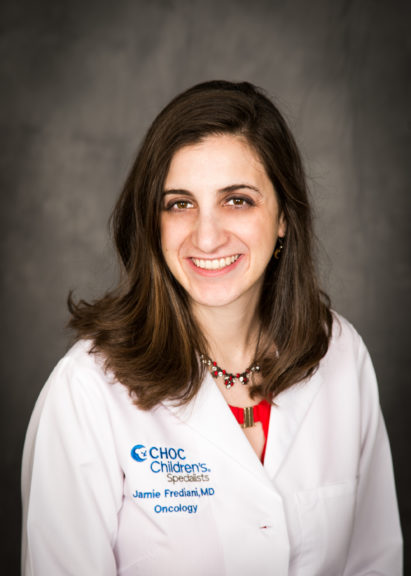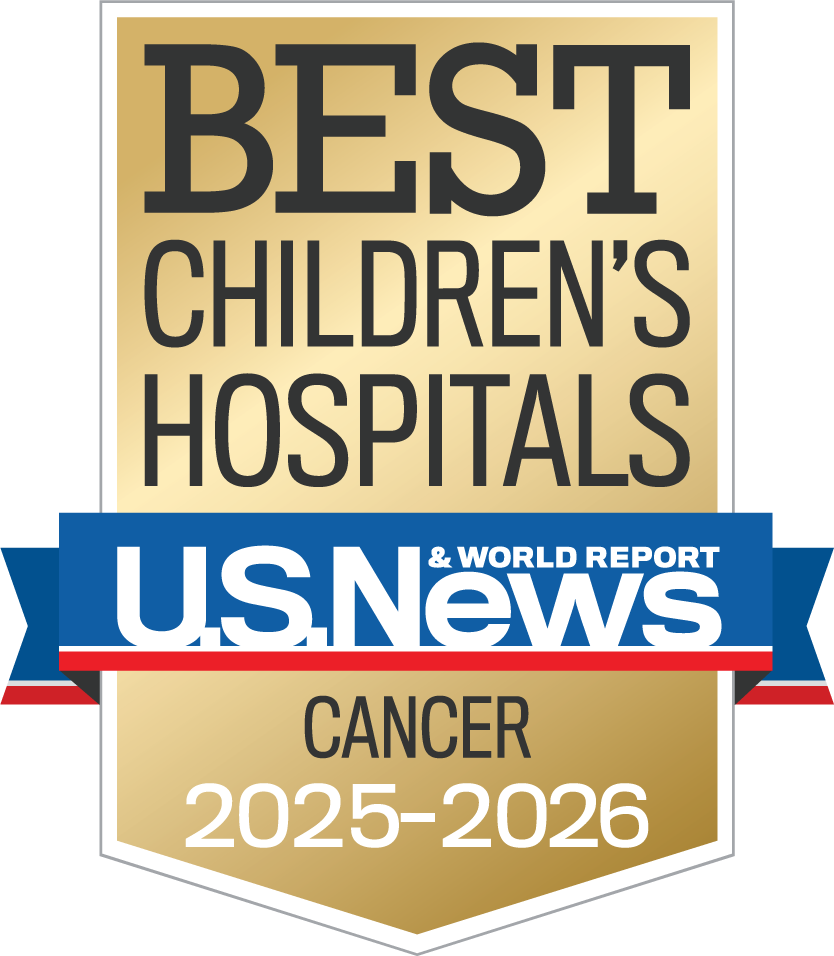As one of the most robust adolescent and young adult (AYA) pediatric cancer programs in the nation, CHOC’s AYA program offers more than comprehensive oncology care to an underserved teen and young adult population — it’s a model for other AYA programs in the country to build upon.
“In the last 15 years or so, we’ve realized there is a huge survival gap in the AYA population, everyone from the age of 15 to 39 years old, whereas over the past 30 to 40 years, we’ve seen significant survival gains in pediatric patients and older adults,” says Dr. Jamie Frediani, pediatric oncologist at the Hyundai Cancer Institute at CHOC. “The AYA population has had very few survival gains, and we believe this is because of a multitude of reasons. They are much less likely to enroll in clinical trials or have access to clinical trials, they do not have the same access to novel new experimental treatments that can improve their survival, their tumor biology is likely different and then there’s a whole host of psychosocial reasons. AYA patients really are their own unique population, and the AYA program at CHOC aims to address that survival gap and to address it from a multipronged approach.”

The multipronged CHOC AYA program focuses on education, research and psychosocial support to increase survivorship within the AYA population.
“Our patients really want to know more about their disease,” Dr. Frediani says. “They want to know more about how their condition impacts their lives whether they’re in treatment or survivorship, such as fertility and sexual education, for example. Our team of experts have education nights with patients to talk about any topics they want to discuss. We have peer mentorship so patients can talk through the highs and lows they experience with someone who’d been through the same thing they’re going through.”
From a research standpoint, Dr. Frediani says the goals of the program are getting more of the AYA patients into clinical trials, knowing where the clinical trial enrollment gap exists and building relationships with adult counterparts to find the best hospitals where AYA patients can be treated.
“We know pediatric diseases do better if a patient is treated at a pediatric hospital. Finding where these patients will do best and forming those relationships to get the most appropriate care is critical. It’s also about finding everything else they need — the supportive medicine, other drugs and different dosing, clinical trials and research projects.”
Addressing AYA patients’ psychosocial needs is the third prong of CHOC’s AYA program.
“I’m a firm believer that multidisciplinary psychosocial supports plays a huge role,” Dr. Frediani says. “Mental health plays a significant role in the treatment of our AYA patients, and I have to believe that affects their outcomes. AYA patients are at a critical juncture in their lives where they’re trying to seek independence. A lot of them are having kids, getting married, starting new jobs, going to college — all these critical life transitions are happening. When you put cancer on top of that, the natural order of this time in their lives is completely disrupted. Social workers, child life specialists, psychologists, case managers, music therapists — all of our resources help our patients know we truly understand their feelings and needs and are here to help them in every way we can.”
CHOC’s AYA program was developed around 2014 and was one of the only AYA programs in the nation to offer such a comprehensive range of services. Dr. Frediani notes that while some AYA programs in the United States today have a heavier focus on treatment, nurse navigation and clinical trials, others are more support-group focused. CHOC is unique because its program is a hybrid of both.
“Our AYA program has a depth that most programs do not. We have this very robust psychosocial support and clinical trial programming around ours. I think we are unique in the amount of resources we provide for our AYA patients. Addressing cancer from our multipronged approach with a multidisciplinary team ends up being so important.”
The strength of CHOC’s AYA program is rooted in the institution’s values and commitment to providing comprehensive cancer care.
“CHOC comes from a community-based model of medicine,” Dr. Frediani says. “We value the bedside relationships with patients, spending time with them and taking care of not just their medical disease, but everything else around it. I see that across our team, from our nurses to our physicians to our social workers to our child life specialists. Everyone is here to stand with our AYA patients and to help them live whatever life they want to live, in whatever way that means. Other physicians should know CHOC wants to help their AYA patients in any way we can, from offering second opinions to helping with fertility preservation to checking on the availability of a clinical trial. I want to make sure there’s not a person in this age range who goes without these critical resources, without knowing this program is here for them.”

CHOC Hospital was named one of the nation’s best children’s hospitals by U.S. News & World Report in its 2025-26 Best Children’s Hospitals rankings and ranked in the cancer specialty.




